Joe Biden issues second veto of his presidency on Clean Water Act regulation
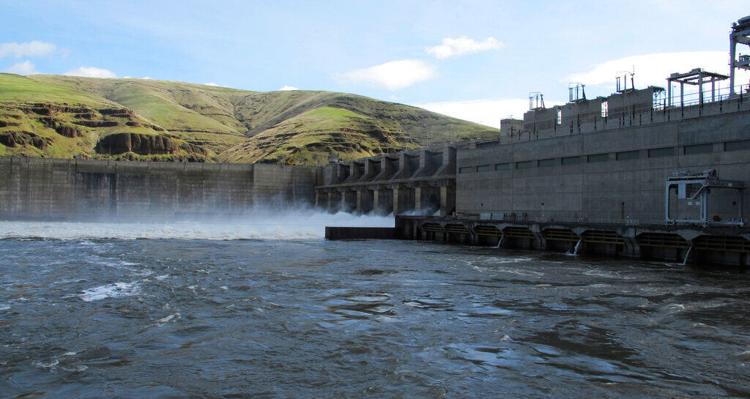
President Joe Biden vetoed the second bill of his presidency on April 6, 2023. Biden vetoed H.J.Res.27, a joint resolution of disapproval under the terms of the Congressional Review Act (CRA) that sought to void an Environmental Protection Agency and Army Corps of Engineers rule from 2023 that specified “which bodies of water fall under the scope of the Clean Water Act and are thereby under federal jurisdiction and protected.” In his veto message, Biden said, “The resolution would leave Americans without a clear definition of ‘Waters of the United States’. The increased uncertainty caused by H.J. Res. 27 would threaten economic growth, including for agriculture, local economies, and downstream communities. […] The resolution would also negatively affect tens of millions of United States households that depend on healthy wetlands and streams.” Overriding a presidential veto requires a two-thirds majority vote in both chambers of Congress. The House of Representatives and Senate both initially passed the resolution by a simple majority. The House of Representatives voted 227-198 to approve the resolution on March 9, 2023. The Senate voted 53-43 to approve the resolution on March 29. Rep. Sam Graves (R-Mo.) introduced the resolution on February 2. President Ronald Reagan issued the most vetoes (87) of all presidents since 1981. Biden, with two vetoes, has issued the fewest. President Donald Trump issued the second-fewest vetoes (9) within this timeframe. Presidents have issued 2,586 vetoes in American history. Congress has overridden 112. President Franklin D. Roosevelt vetoed 635 bills, the most of any president. Presidents John Adams, Thomas Jefferson, John Q. Adams, William H. Harrison, Zachary Taylor, Millard Fillmore, and James A. Garfield did not issue any vetoes. Republished with the permission of The Center Square.
Jim Zeigler: Independence Day, 246 Years Ago
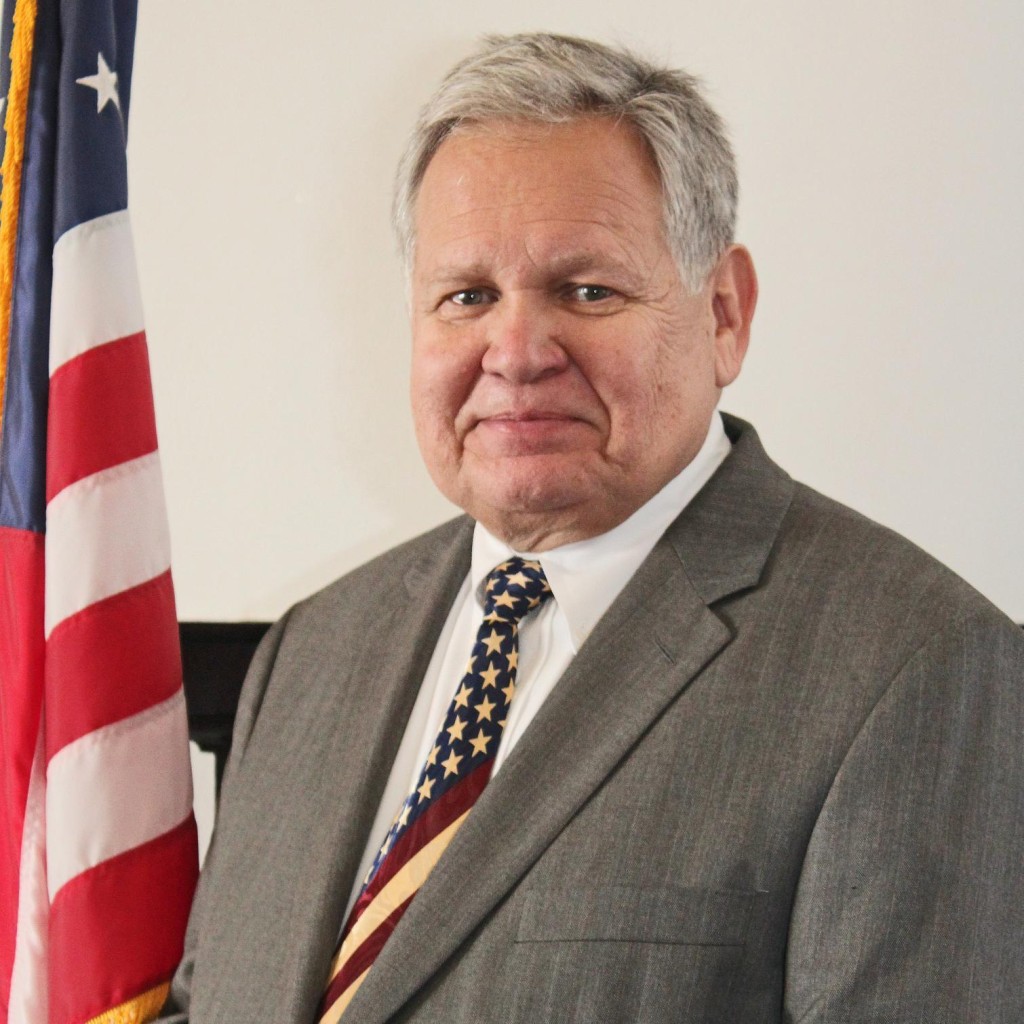
Many of us Alabamians will enjoy a long Independence Day holiday. Since July 4th is on Monday, it is a three-day weekend. Alabama families will enjoy barbecue, the lake or beach, fireworks, and the gathering of family and friends. 246 years ago, on the first Independence Day (though it was not called that), it was a different scene altogether. A little-known fact of history is that the Declaration of Independence was agreed to by the Continental Congress on July 2. Congress merely recessed and set the official signing for two days later. Shortly afterward, signer John Adams, later the second President, predicted that the nation would commemorate each July 2. He was right about everything except the July 2 date. “The Second Day of July 1776, will be the most memorable Epocha in the history of America. I am apt to believe that it will be celebrated by succeeding generations as the great anniversary festival. It ought to be commemorated as the Day of Deliverance by solemn Acts of Devotion to God Almighty. It ought to be solemnized with Pomp and Parade, with Shews, Games, Sports, Guns, Bells, Bonfires and Illuminations from one End of this Continent to the other from this time forward forever more. You will think me transported with enthusiasm, but I am not. I am well aware of the Toil and Blood and Treasure that it will cost Us to maintain this Declaration, and support and defend these States. Yet through all the gloom, I can see the rays of ravishing light and glory. I can see that the end is more than worth all the means. And that posterity will triumph in that days’ transaction, even although we should rue it, which I trust in God We shall not.” __John Adams, Massachusetts It was in Philadelphia at the Continental Congress on July 1, 1776. The signers of the Declaration of Independence knew that their signatures on that document might also be — literally — their own death sentences. They knew that soon the British army would be sailing across the Atlantic to occupy the mostly defenseless colonies. They knew the colonies did not yet have the soldiers or arms or training to stand against the British and send them packing back to England. Yet they put their signatures, and their lives, their families, and their destinies, on the Declaration of Independence. Against all odds, and even against reason, that Declaration told the world that “these United Colonies are, and of right ought to be, free and independent states.” Most of the people living in the colonies had had enough of British domination, of working and virtually existing at the pleasure of a king they didn’t know and who obviously considered them less than English citizens. They wanted to be free, to make their own decisions, to govern themselves, and to breathe the sweet air of liberty. The first celebration of American Independence took place in Philadelphia, where the Continental Congress was meeting. The ceremony began with a public reading of the Declaration of Independence. Then, from the tower of the State House, now called Independence Hall, the Liberty Bell rang out. The coat of arms of the king of England was taken down, and there was a parade. Cannons boomed. The people, though aware of what lay ahead, cheered! A new nation sprang to life. That’s what this day is meant to be about. So it began. A more elaborate celebration was held there in 1788 after the new Constitution had been ratified. Then there was a much larger parade, speeches, and a dinner. But between those two celebrations, in 1776 and 1788, there was much horrible fighting, rivers of bloodshed, the deaths and bankruptcies of many of the signers of the Declaration, families torn apart, and businesses and farms destroyed. The freedoms declared by the Declaration — and ushered into fact by the Constitution — were secured at a terrible cost. Soon, across the growing nation, at sunrise on July 4, salutes were fired, and bells were rung. Flags were flown from buildings, from homes, and along the streets. Shop windows were decorated with red, white, and blue. Churches held special services. What’s Independence Day like today? Do most people you know actually take time to purposely celebrate our independence in meaningful ways? Even while we are facing threats from inside and out. What are we fighting for now? Is it anything like what motivated our Revolutionary Army? Are we still one nation under God, with unalienable rights endowed equally to all — among these life, liberty, and the pursuit of happiness? Surely this long weekend is a time for all of us who still cherish that original dream, the one for which so many have died, to individually and collectively re-declare our independence from tyranny, despotism, taxation without representation, and debts that no free society should ever bear. Independence from enemies within and without. And allegiance to the blood-bought foundation of the government of a Constitutional Republic, by, and for the people . . . people determined to live free. Jim Zeigler has been the State Auditor of Alabama since 2015.
William Haupt III: Christmas Eve 1776 changed the world forever
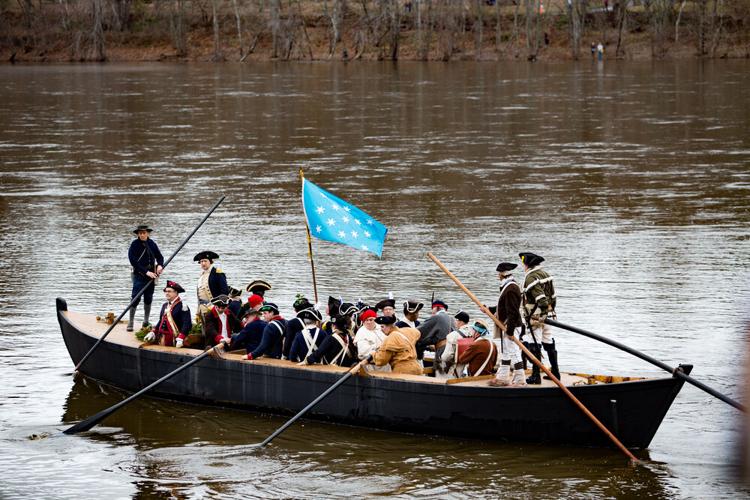
“We must remember, mankind allows that all those who conduct themselves as worthy members of the community, are equally entitled to the protections of civil government.” – George Washington The greatest Christmas gift the world received was the night of our savior’s birth. And its greatest gift to world freedom came on Christmas Eve, 1776, on the banks of the Delaware River – America. The birthing of America was not easy. Only a third of the colonists supported a Revolution. It pitted neighbors against neighbors. These patriots were not only rebelling against the British. They were fighting other colonists who were loyal to British King George, parliament, and the English church. Often overlooked are the “fence-sitters” who were content living free from monarchical dominance. They enjoyed colonial religious and economic freedoms and tolerated the British as a necessary evil. The patriots needed to earn the support from these neutralists in order to win the Revolution. The patriots humiliated the Loyalists in public and subjected them to violence, intimidation, ridicule, and harassment. They vandalized their property and burned down their businesses. Even families were divided. Ben Franklin’s son William, governor of New Jersey, was loyal to the king. “He that would live in peace and at ease must not speak all he knows or judge all he sees.” – Ben Franklin Colonists who did not join the patriots united with the British as obedient subjects. Others thought they could profit from selling arms and war supplies to the British without true allegiance to anyone. Patriots had been building support for the Revolution since the end of the French and Indian War in 1763. In severe debt, the British enacted the 1765 abusive Stamp and the 1767 Townshend Acts. Following the patriots 1773 Tea Party in Boston Harbor, they passed The Coercive Acts in 1774. And that was the final insult the patriots needed to win the war of propaganda against the British! Gifted orators like Patrick Henry and Enlightenment thinkers John Locke and Thomas Paine kept the momentum for revolution growing with colonial statesmen, politicians, and with uneasy patriots. “If there must be trouble, let it be in my day, so that my children may have peace.” – Thomas Paine No man in the colonies was more persuasive with the commoners and the peasants in promoting the Revolutionary War than Enlightenment thinker and gifted English writer Thomas Paine. He had led reform movements in Europe and Paine inspired farmers, workers, and commoners to revolt. Paine went from towns, hamlets, and villages distributing copies of his 90-page booklet, “Common Sense.” Paine preached the rewards and the substantiality of independence to patriots who never dreamed it was an option. “The mind once enlightened cannot again become dark.” – Thomas Paine On April 18, 1775, the British marched from Boston to Concord, Massachusetts, to seize stockpiled colonial weapons. Paul Revere rode through the streets of Boston rallying the patriots: “The British are coming, the British are coming!” The next day, when the patriots and the Redcoats clashed at Lexington and Concord, it was “the shot heard round the world.” This signified the beginning of the Revolution and, most importantly, it marked the birthing of America as the guardian of global liberty. When the minutemen fired the first shots of the Revolution, the Redcoats were well prepared. They had superior weapons, ammo, uniforms, and abundant food and medical supplies. They were ready to defend their turf. They were prepared to fight a marathon battle to stop the colonial insurrection. On the other hand, the colonies had a volunteer army with no central government and little money. They sent troops to the Continental Army but kept many behind to protect themselves. Many of the colonies were more concerned for self-survival, while the British were determined to win the war. Late in 1776, the Revolutionary War looked like it was a lost cause. The patriots lacked uniforms, food, ammunition, and weapons and some were even shoeless. There was tremendous suffering from cold and starvation. A series of defeats had depleted morale, and many had already deserted. In the bitter cold on Christmas Eve 1776, dogged by pelting sleet and snow, George Washington knelt in prayer at McKonkey’s Ferry asking the Lord for the right words to inspire his troops to keep going. They needed to cross the Delaware River to Philadelphia for a surprise attack on the British. Historian James Cheetham wrote, “As Washington mounted his horse that night he pulled a draft of Thomas Paine’s ‘American Crisis’ from his saddlebag. As he began reading it, he knew that it was the answer to his prayers. When he returned to camp he ordered it read to his troops immediately.” “The summer soldier and the sunshine patriot will, in this crisis, shrink from the service of their country; but he that stands by it now, deserves the love and thanks of man and woman. Tyranny, like hell, is not easily conquered; yet we have this consolation with us, that the harder the conflict, the more glorious the triumph. What we obtain too cheap, we esteem too lightly: it is dearness only that gives a thing its value. Heaven knows how to put a proper price upon its goods; and it would be strange indeed if so celestial an article as freedom should not be highly rated.” – Thomas Paine The next morning, Christmas Day 1776, Washington’s army crossed the icy Delaware and won two crucial battles. He defeated the British at Trenton and a week later he executed a daring night raid to capture Princeton on January 3. This gave control of New Jersey to America and turned around the morale and unified the colonial army. Washington’s insightful reading of “The American Crisis” on Christmas Eve 1776 turned a humbling defeat into a glorious victory for the American patriots! Shortly after the war, John Adams remarked: “Without the pen of Paine, the sword of Washington would have been wielded in vain.” Washington’s men basked in its victory
John Merrill: Voting Rights Advancement Act is an unjustifiable power grab
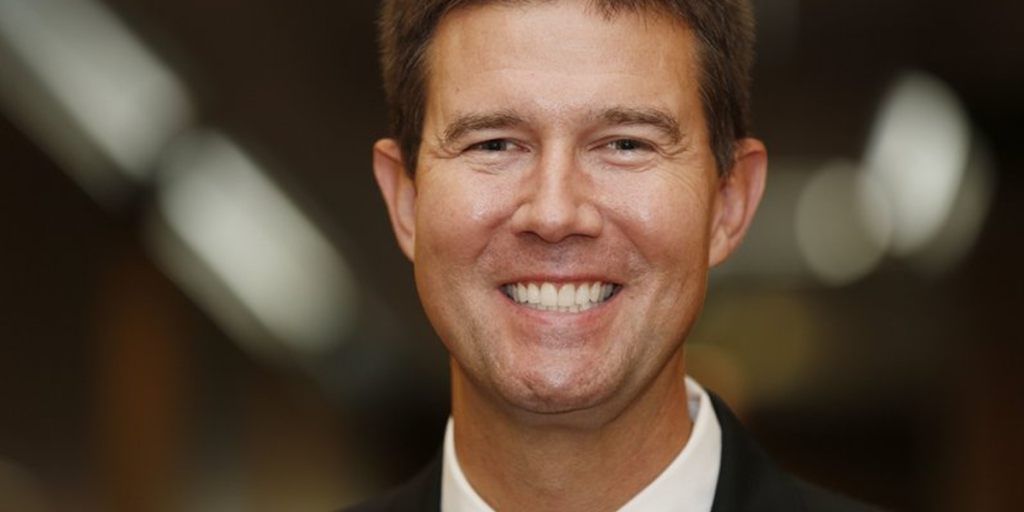
Earlier this month, H.R.4 was introduced by Representative Terri Sewell, who represents Alabama’s 7th Congressional District. H.R.4 is the latest attempt by Washington Democrats to nationalize our federal electoral system. In reality, H.R.4 is a solution in search of a problem. H.R.4’s advocates refuse to acknowledge the substantial progress our nation has made since the enactment of the Voting Rights Act of 1965. The legislation extends the practice of preclearance, the federal approval of any state’s election administration changes, to every state in the union and threatens to overturn many popular election integrity laws, such as Voter ID laws. What justifies this federal takeover of elections? The answer is nothing. It has never been easier to vote in America than it is today. Washington Democrats are attempting to manufacture a crisis in order to justify their unconstitutional power grab. At the Constitutional Convention, the framers were careful to ensure that each state retained its right to administer its own elections. However, today’s congressional Democrats assert that the Elections Clause of the U.S. Constitution grants them the authority to enact H.R.4, but many disagree with that assertion. The Elections Clause is a constitutional fail-safe, which is only applicable if a state is unwilling or unable to conduct their own federal elections. Many Federalists, like Alexander Hamilton, worried that the federal government could not survive if a portion of the states either refused to hold elections or were unable to hold elections due to war. In Arizona v Inter-Tribal Council of Arizona Inc., the Supreme Court confirmed that the Elections Clause was “the Framer’s insurance against the possibility that a state would refuse to provide for the election of representatives to the Federal Congress.” It is important to note that the Voting Rights Act has historically been justified by the 14th and 15th Amendments, but after a string of unfavorable court decisions, congressional Democrats have resorted to this approach. H.R.4 not only lacks proper legal standing, but current conditions do not justify the extraordinary measures that H.R.4 would implement nationwide. When examining the VRA’s coverage formula in their landmark decision, Shelby County, Alabama v. Holder, the Supreme Court stated, “The question is whether the Act’s extraordinary measures…continue to satisfy constitutional requirements. As we put it a short time ago, ‘the Act imposes current burdens and must be justified by current needs.” In Shelby, SCOTUS ruled that Section 4 of the VRA was unconstitutional because its “extraordinary” measures were no longer justified by current needs, and similarly, the burdensome measures proposed by H.R.4 are not justified by the conditions of 2021. It has never been easier to vote than it is today in Alabama and the rest of the nation. Since the beginning of my term as Secretary of State in 2015, we have registered 1,902,057 new voters, and we have a total of 3,602,266 registered voters. Since 2016, we have set records for voter participation in every primary and general election. In Alabama, 96% of African-Americans, 91% of White-Americans, and 94% of all eligible residents are registered to vote. Our office works hard each and every day to ensure that every Alabamian is able to register to vote and has access to some form of government-issued photo ID. It is beyond foolish to pretend as if we still live in the Alabama of 1965. I completely agree with Chief Justice John Robert’s observation that “no one can fairly say (the record] shows anything approaching the ‘pervasive,’ ‘flagrant,’ ‘widespread,’ and ‘rampant discrimination that clearly distinguished the covered jurisdictions from the rest of the nation in 1965.” If H.R.4 is enacted, then every state in the Union will be treated as if they were the “covered jurisdictions” of 1965 and placed under the authority of unelected federal bureaucrats. In fact, H.R.4 goes beyond the requirements of the original preclearance regime by requiring that all states seek approval from the Justice Department for certain voting practices regardless of whether they are discriminatory or if the state has met any other criteria for preclearance coverage. The goal of “practice-based preclearance” is obvious. Congressional Democrats want to cater to their far-left base by overturning current state election laws and stop any state from enacting future election integrity legislation in the future. H.R.4 is an attempt to outlaw Voter ID laws and other similar election security measures. Despite the fact that ID laws maintain widespread public support, the Democrats continue to claim that ID laws are discriminatory against minorities. However, the public disagrees. According to Rasmussen, 69% of African Americans support voter ID laws, and the Atlanta Journal Constitution also found that two-thirds of Georgia voters support voter ID laws. As John Adams famously said, “Facts are stubborn things,” but it does not appear that any amount of factual evidence will stop the congressional Democrats’ attempt to manufacture a crisis for their partisan agenda. Democrats continued to push this narrative despite the fact that Alabama increased participation in every primary and general election since 2016. The disparities of 1965 are not the realities of 2021, and congressional Democrats should stop refusing to acknowledge that fact. I encourage every concerned Alabamian to reach out to Senator Richard Shelby and Senator Tommy Tuberville and ask them to stop this unconstitutional federal takeover of our electoral system by congressional Democrats. If you would like to make your voice heard, please call Senator Shelby’s Office at (202) 224-5744 or Senator Tuberville’s Office at (202) 224.4124. John Merrill is currently serving as Alabama’s 53rd secretary of state.
Will Sellers: Liberty of conscience didn’t come easy
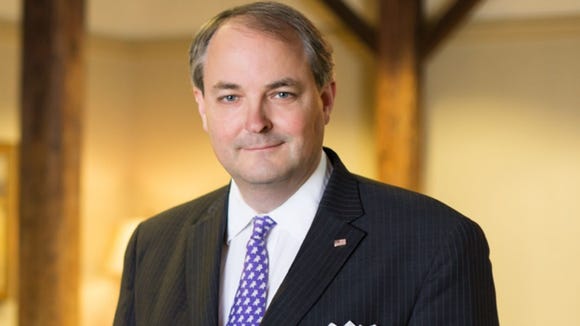
We take freedom of conscience for granted, but 500 years ago, accepting and practicing beliefs outside of the mainstream was deadly. The 1521 Diet of Worms was a legislative gathering held in Worms (one of the oldest cities in Europe) to consider Martin Luther’s theology. The stakes were extraordinarily high as Luther, a mere monk, parried with the leading Roman Catholic scholars of his day. The ramifications of this meeting, while couched in religious terms, had clear political underpinnings. So much so that Holy Roman Emperor Charles V presided over the “meeting,” which allowed the trappings of his office to validate the ultimate decision. Martin Luther’s heretical writings were to be publicly reviewed and examined, and while he was given safe conduct to attend the diet, that he was a heretic was a foregone conclusion. The issue before the diet was not the persuasiveness of Luther’s argument but whether he would recant. When Luther appealed to his conscience and argued that his conviction about his beliefs was firm and not subject to change, he set himself in the crosshairs of the 16th century religious and political establishment. Heresy and blasphemy were capital offenses. Keeping the doctrines of the Church pure and undefiled was taken quite seriously, and anyone advocating a different belief system was considered an outlaw with no legal process available for protection. Inappropriate beliefs about religion might lead others to perdition, so political power was enlisted to stop errant beliefs and prohibit any doctrine that was not officially sanctioned. But mandating beliefs or emotions fails to consider human advancement in rationally considering ideas, accepting some while rejecting others, and developing a personal system of faith and knowledge. The most critical idea inadvertently let loose by the Edict of Worms was that in matters of faith, people could think for themselves and choose a belief system appealing to the conviction of their conscience. While it would be easy to accuse the Holy Roman Empire of attempting to eliminate competing faiths, protestants held an equally monolithic view resulting in religious wars that seemed to miss the point of the faith each side advocated. Protestants, while wanting to believe as they wished, were not willing to extend this liberality to others within their realm of influence. The Puritan poet John Milton would see his writings banned by Cromwell’s Commonwealth, causing him to write one of the first essays against censorship and in favor of Christian liberty. Said Milton, “Let Truth and falsehood grapple; whoever knew Truth put to the worse in a free and open encounter?” But even in the new world, liberty of conscience was slow to catch on. The Dutch Reformed Peter Stuyvesant attempted to limit the worship of Quakers within his jurisdiction. Refusing to submit, the residents of Flushing, New York published the Flushing Remonstrance, which advocated for freedom of conscience not only to Quakers but also to “Jews, Turks, and Egyptians.” Controlling beliefs and limiting ideas was nothing new for religion, but once institutional religion was de-coupled from government, limiting dissension became applied more frequently in the realm of politics. Often when a new political regime became ascendant in countries without a history of personal freedoms, dissent was stifled, disagreements became illegal and hagiographic propaganda replaced information. One area in which politicians around the world agree is how much they despise opposing viewpoints. Even in seemingly democratic countries with a history of freedoms supported by the rule of law, politicians simply hate criticism and will attempt to restrain if not eliminate it. Usually, this takes the form of mild disgust, but at times it can prove to be both personally and financially costly to oppose the ruling elite. We expect this from authoritarian governments, but when we find democratically elected governments engaging in censorship and limiting dissent, we should be troubled. Consider the Reuther Memorandum of the 1960s. Seemingly established to advocate for fairness and equality of the public airwaves, Bobby Kennedy used the Reuther brothers’ report to curtail political opposition with breathtaking success. But this is not a liberal vs. conservative issue as regulation and limitations of speech are subtly advocated by all sides. Even founding father John Adams had Congress pass the Sedition Act, making it a federal crime to speak, write, or print criticisms of the government that were arguably false, scandalous, or malicious. Numerous newspaper editors were arrested, and some even imprisoned under this act. In recent memory, both conservative and liberal groups have advocated using government regulations to limit their respective definition of offensive speech. A journalist of the Jacksonian era, William Leggett, warned: “if the government once begins to discriminate as to what is orthodox and what heterodox in opinion, what is safe and unsafe in tendency, farewell, a long farewell to our freedom.” Ideas, whether in opposition or support of a politician or political ideology, should never be restricted. It is much better to have ideas aired and let people decide. Bad ideas typically die a quiet death, but good ideas live on and become part of the progress of democratic government. Rather than restrict poorly thought ideas, it is better to let them be proclaimed loudly and see them disintegrate on impact. Many years ago, Jerry Rubin encouraged student protestors to burn down a historic academic building. The more he shouted, the more the crowd responded, but no one was willing to act because no one was willing to torch a building to support academic freedom. Bad ideas are like that. Giving someone a megaphone and unlimited time can be their undoing. Public debate, like sunlight, is a great disinfectant. Debate and open discussion forces ideas to compete against practical reality, thus winnowing out the ill-conceived and fostering workable solutions. So, 500 years ago western civilization moved toward allowing people to think and believe as they followed their convictions, but even Luther and his followers failed to see the broad
Will Sellers: In defense of the Electoral College

This article originally appeared in City Journal. I came of age politically with the 1968 presidential election. Alabama governor George Wallace was running as an independent against Richard Nixon and Hubert Humphrey. My parents were Nixon supporters, and I, their five-year-old son, hopped on the Nixon bandwagon with gusto. The dinnertime conversations in the month preceding the election were all about whether Wallace’s third-party candidacy could work. This all fascinated me, so I asked my mother to let me watch her vote on Election Day. She agreed, but to my dismay, when I joined her in the voting booth, I did not see Nixon, Humphrey, or Wallace listed on the ballot. This made no sense to me; I thought we were here to vote for Richard Nixon? My mother then explained that we didn’t vote for the presidential candidate directly. Instead, we voted for men and women called presidential electors. These people were well-regarded and appointed for the special privilege of casting the deciding votes in presidential elections. This system seemed out of place to me, because in every other election the candidates were listed by name on the ballot. Why not for president? Why should my mother vote for nine people, who would then vote later for president, instead of voting directly for the president? This was my first encounter with the Electoral College. It would not be my last. The first electoral college was a medieval construct dating back at least to the twelfth century, when specific princes were chosen to elect the Holy Roman Emperor. They were influential noblemen, who, because of the importance of their respective kingdoms, were given the hereditary title of “elector.” After the death of the emperor, they met, much like the College of Cardinals, to choose a successor. Whether this idea influenced the deliberations of the Constitutional Convention is speculation, but, like most of the other aspects of the Constitution, the mechanics of the new government were based on historical facets of self-government. The new American nation was built on traditions of representative government expressed in the English parliamentary system, the organization of Protestant church government, and the colonial experience with various local governments in the New World. Important questions necessarily arose during the Constitutional Convention concerning the process of electing the president. How exactly would a president be chosen, and to whom or what would he owe allegiance? Some advocated for election to take place in the House of Representatives, or in the Senate, or even in the several states. The obvious problem with these proposals is that they would create an axis between the president and the electing body. If the states elected the president, then the larger, wealthier, and more populous states would receive greater attention and more favorable treatment by the executive branch than would the smaller, less populous states. A similar imbalance of power would occur were the president chosen by the House or the Senate. Thus, the mechanics of electing the chief executive required balancing various interests to give the executive branch the requisite independence from other political bodies, while maintaining co-equality. According to the chosen scheme, each state would appoint “electors” based on the number of House and Senate members comprising the state’s congressional delegation. These electors were appointed for the sole purpose of electing the president, and a simple majority of their votes would decide the election. This created another means by which the spheres of Congress and the federal government were balanced and divided from that of the states. The Constitutional Convention viewed electors as not necessarily aligned with a faction, but as citizens of honesty, integrity, and political acumen. Originally, electors voted for two people; the person with the most electoral votes became president, and the runner-up became vice-president. Flaws in this system became evident with the presidential election of 1796, when John Adams was elected as president and his archrival, if not nemesis, Thomas Jefferson, was elected vice president. Four years later, Jefferson and Aaron Burr received the same number of electoral votes—neither had the required majority. This unworkable situation was remedied by the 12th Amendment to the Constitution, which prescribed that electors would separately vote for a president and vice president on the same ballot. Later, state legislatures, as they were constitutionally permitted and as the two-party system grew, allowed electors to run as proxies for the presidential and vice-presidential party nominee. For at least the first 100 years, the system worked well, and, other than the 12th Amendment, no major attempts were made to alter the process of electing the president and vice president. Several times, the election was submitted to the House of Representatives after the electors failed to achieve a majority vote for president. For example, in 1824, the election was submitted to the House, where power plays resulted in the election of John Quincy Adams, though Andrew Jackson won significantly more of the popular and the electoral vote. Rutherford B. Hayes, a Republican, lost the 1876 popular vote to Samuel Tilden, a Democrat, but became president because he had prevailed in the electoral vote, though voter fraud in some jurisdictions seemed certain. Many Democratic candidates running for federal office embraced the idea of abolishing the Electoral College, not least Sam Rayburn, who, in his first congressional election in 1912, advocated electing the president by popular vote. If there was any momentum for this aspect of the Progressive movement, it lost steam as other, more critical issues advanced. Today, the constitutional method for electing the president is under siege. The result of the 2016 election—with Donald Trump winning the presidency despite losing the popular vote—led pundits and politicians to call for the presidential election to be based on the popular, not electoral, vote. But lamenting results that saw two presidents in recent memory fail to win the popular vote obscures the effect that abolishing the Electoral College would have on a national campaign. A presidential campaign aimed at achieving a popular vote majority would completely ignore
Kay Ivey: This is our time, Alabama
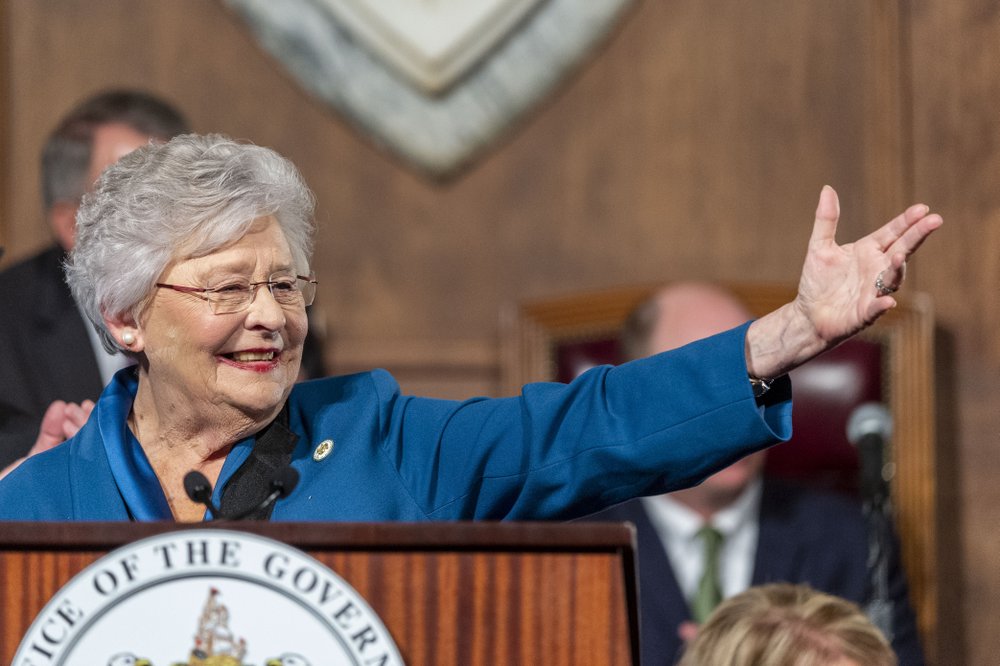
Gov. Ivey provides her take on our nation as we approach America’s birthday.
Will Sellers: Let’s celebrate the Magna Carta

It’s the 805th anniversary of the grandfather of our Constitution, the Magna Carta.
Jeff Sessions: Religious freedom and the promise of Easter
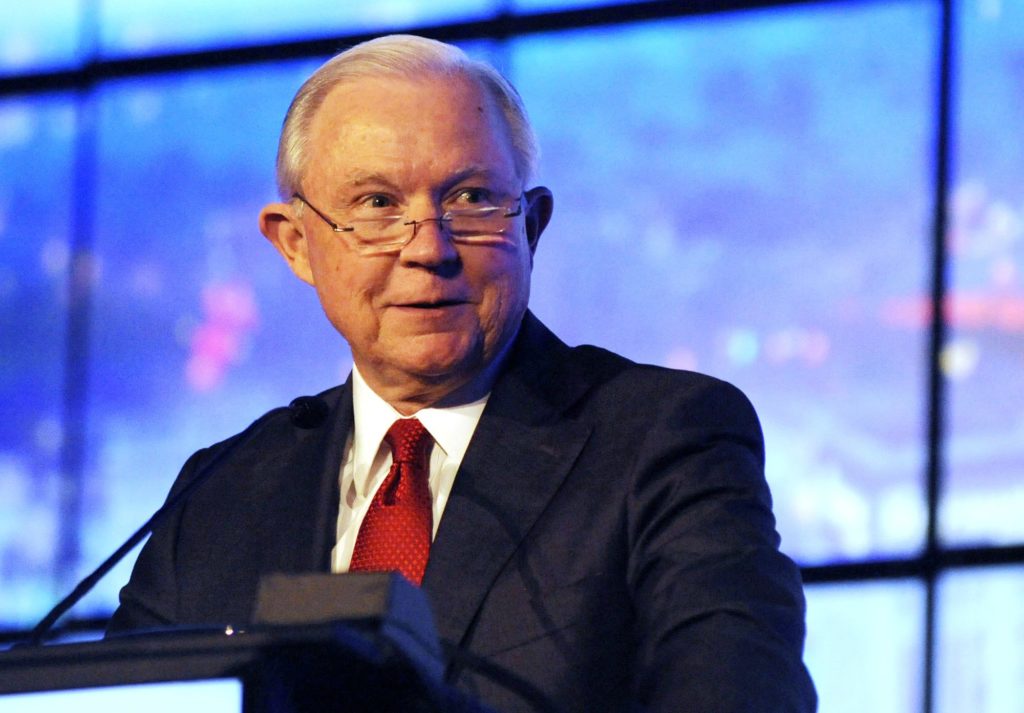
Jeff Sessions discusses the religious liberties we enjoy and the importance of celebrating Easter.
Bradley Byrne: Impeachment lessons from the distant past
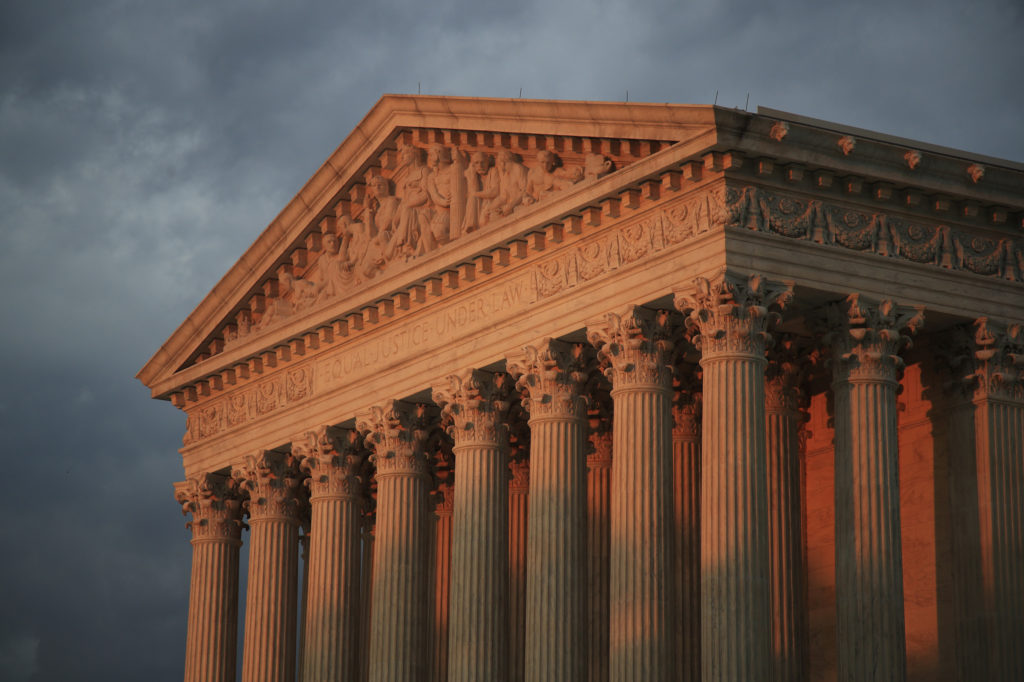
The first true test of the Legislative branch’s impeachment powers occurred over two centuries ago in 1805. Its parallels with the current impeachment process, and the important precedent it set for determining impeachable conduct, make it worth examining today. That long-ago impeachment battle was waged against Samuel Chase of Maryland, a justice of the United States Supreme Court. The episode is a stern warning against the use of the power of impeachment for political purposes. In 1804, President Thomas Jefferson resoundingly won reelection, and his Democratic-Republican party won large majorities in both the House and the Senate. With his control over the Executive and Legislative branches secure, Jefferson looked to the third branch – the Judiciary. The Supreme Court, comprised at that time of only seven justices, consisted primarily of appointees of George Washington and John Adams, both members of the opposing Federalist party. Jefferson had been angered by several Supreme Court rulings and considered the court an obstacle to his political agenda. He resolved to remove that obstacle. Jefferson saw Chase, an unabashed Federalist appointed by Washington, as the justice most vulnerable to being removed by a partisan impeachment. Jefferson and his allies blamed Chase’s partisanship for several of his rulings against Jefferson. They claimed this conduct was worthy of impeachment. However, what some of Chase’s opponents considered “judicial excesses” weren’t the real issue. Chase’s partisan leanings were merely a convenient excuse to eliminate an obstacle to the Democratic-Republicans’ unchecked political power. Our Founders warned against falling into the trap of impeachment over partisan squabbles. In the Federalist Papers, Alexander Hamilton warned of the “danger that the decision will be regulated more by the comparative strength of parties, than by the real demonstrations of innocence or guilt.” Therefore, the Constitution makes clear that the only impeachable offenses are “Treason, Bribery, or other high Crimes and Misdemeanors.” Did this disagreement on policy grounds rise to an impeachable offense? Nevertheless, with Jefferson’s directive, the House impeached Justice Chase on a party-line vote in a partisan show eerily reminiscent of today’s episode. It would be in the Senate, where Chase’s trial was to take place, where the Democratic-Republicans’ political motivations would come to a head with the Founders’ intentions. Some partisans would ignore the intent of our Founders. Senator William Giles of Virginia said impeachment is “nothing more than inquiry, by the two Houses of Congress, whether the office of any public official might not be better filled by another.” Of course, that contradicts what the Constitution clearly says about impeachment. Yet Chase’s opponents would leave no stone unturned in seeking a charge to stick as an impeachable offense. One of his defenders said Chase’s “footsteps are hunted from place to place, to find indiscretions, which may be exaggerated into crimes.” Does this sound familiar? Those Senators were keenly aware of the important precedent at stake. Most realized that whatever short-term political gains they might achieve would pale in comparison to the lasting detriment to our young nation if the Constitution and its separation of powers were to be undermined. Ultimately, after great deliberation, the Senate acquitted Chase, even with the Senate’s 24 Democratic-Republicans outnumbering its nine Federalists. Despite lacking evidence of an impeachable offense, Democrats have gone too far towards impeaching President Donald Trump to turn back. Never mind that only months ago, Speaker Pelosi said “impeachment is so divisive to the country that unless there’s something so compelling and overwhelming and bipartisan, I don’t think we should go down that path because it divides the country.” Just like in 1805, one party seeks impeachment to gain political power. This time, a president is targeted. This poses a great threat to our Republic, and I’ll continue fighting hard to stop this scheme and protect our Constitution.
Daniel Sutter: The most significant presidential election
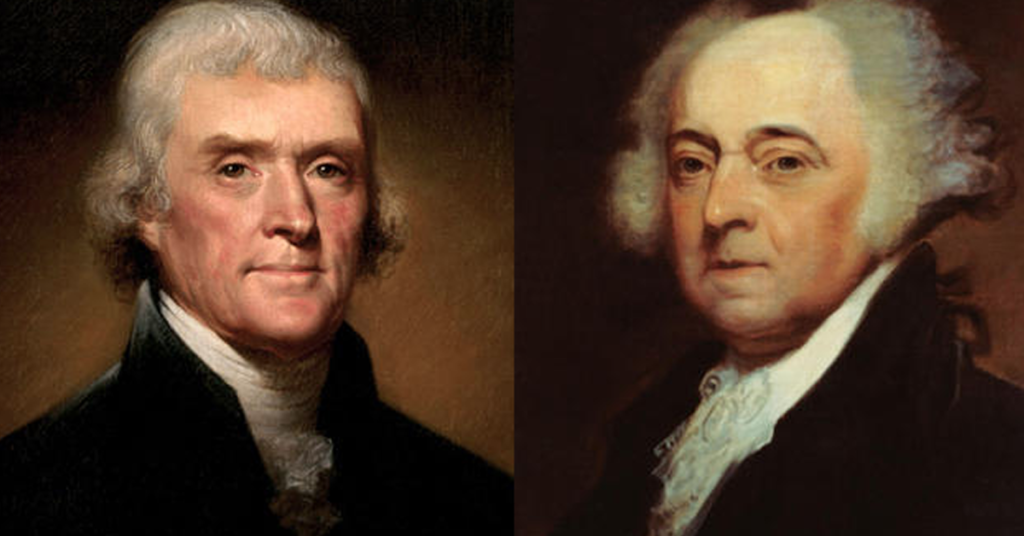
Every presidential election appears like the most important ever, but history provides some perspective. The election of 1800, in which Thomas Jefferson defeated incumbent John Adams to become our third president, offers a case in point. Jefferson later called this the “revolution of 1800,” rivaling the American Revolution in significance. Adams and Jefferson contested the 1796 presidential election to succeed George Washington. Conflict between Adams’ Federalists and Jefferson’s Republicans escalated during the term, highlighted by an undeclared naval war with France. Perhaps even more ominous were the Alien and Sedition Acts. These acts lengthened the residency required to become a naturalized citizen (immigrants tended to support the Republicans), allowed the president to imprison or deport aliens or citizens of a foreign nation during war, and allowed prosecution of newspaper editors for criticizing the government. The Acts seriously threatened the Constitution’s principles of freedom and limited government. Political turmoil brought the nation to the verge of civil war. Some Federalists wanted to raise a provisional army to suppress Republicans in Pennsylvania and Virginia. Just years after the founding, America’s experiment with freedom was coming apart. States selected the delegates to the Electoral College in 1800, and the Republicans had influence in many state governments. States selected electors at different times through the year, and the Electoral College was tied 65-65 when the last state, South Carolina, chose electors for Jefferson. President Jefferson extended an olive branch to the Federalists and the Alien and Sedition Acts were repealed. The Election of 1800 transferred power from one party to another for the first time, a historic achievement. Elections have ensured a peaceful, albeit often contentious, process for transferring power. Previously, monarchs and emperors held power, and a change in leadership required a civil war. How do elections bring peace to politics? Alternatively, why doesn’t civil war break out after every election? Because losing candidates do not try to occupy office via force; in other words, they “accept” the results. So why do losing candidates accept the results? Two factors are relevant. First, regular elections offer the opportunity to contest for office again relatively soon. A loss is not forever, and losers can win office in the future if they do not resort to violence now. Limiting the powers of government also fosters peace. We can tolerate the “wrong” people in power when government wields less power over our lives. If government can take away your property or jail you, you could lose everything before the next election. The First Amendment’s separation of church and state illustrates the value of limiting government. America’s founders separated church and state not because they thought religion unimportant, but because of its importance. People will fight and die to worship as they choose, and sadly, many wars have been fought over religion. The losing side is less likely to “accept” an election outcome if the government can ban their church. Elections must be held regularly to ensure they work. Political scientists talk about the institutionalization of democracy in a nation, which refers to people adjusting to the election outcome. The Obamas, for instance, will vacate the White House in January. When the idea of forcibly staying in office after losing an election seems crazy, elections are institutionalized. Elections both transfer power peacefully and limit the potential for extreme action by officeholders, since such action will result in defeat in the next election. The democratic peace is indispensable for prosperity. As economist Ludwig von Mises observed, “There can be no lasting economic improvement if the peaceful course of affairs is continually interrupted by internal struggles.” Modern life would be impossible without secure supplies of food, water, and electricity. Peace between nations allows international extension of commerce. We will soon elect a new president. The turmoil of the present often seems unprecedented. The election of 1800 demonstrated power could be transferred peacefully and that animosity can recede after an election. ••• Daniel Sutter is the Charles G. Koch Professor of Economics with the Manuel H. Johnson Center for Political Economy at Troy University and host of Econversations on TrojanVision. The opinions expressed in this column are the author’s alone and do not necessarily reflect the views of Troy University.
Darryl Paulson: Voters don’t understand or like the Electoral College

Here are a few basic facts about the electoral-college system. First, very few voters understand how it works. Second, most voters hate the system. Third, the system is almost impossible to change. Those who drafted the Constitution had little trust in democracy. James Madison, in The Federalist Papers, wrote that unfettered majorities tend toward “tyranny.” John Adams, signer of the Declaration of Independence and second President, noted that “Democracy never lasts long. It soon wastes, exhausts, and murders itself. There never was a democracy that did not commit suicide.” Reflecting their distrust of democracy, the drafters of the Constitution wanted to create a process where the president would be indirectly selected. Direct election was rejected because they believed that most voters were incapable of making a wise choice. Voters would likely vote for a well-known person, especially one from a voter’s home state. A Committee of Eleven was appointed and they recommended a compromise where each state would appoint presidential electors equal to the number of representatives and senators. The electors would cast a vote for president and vice president. The candidate with the most votes would be president and the candidate with the second highest vote would be vice president. The compromise was accepted and Alexander Hamilton described the electoral-college plan “if the manner of it be not perfect, it is at least excellent.” The compromise worked until the 1800 presidential election when electors cast an equal number of votes for Thomas Jefferson, who the Anti-Federalists wanted to be president and Aaron Burr, who they wanted as vice president. After 36 ballots, the House selected Jefferson as president. The 12th Amendment, adopted in 1804, separated the electoral vote for president and vice president. There is little doubt that Americans hate the Electoral College system and prefer the direct election of the president. The system has allowed the election of four presidents who lost the popular vote, but won the electoral vote. In 1824, Andrew Jackson won the popular vote, but lost when the House selected John Quincy Adams. In 1876, Samuel Tilden won the popular vote by a quarter million votes, but lost the electoral vote to Republican Rutherford B. Hayes. In 1888, Grover Cleveland received more popular votes but lost to Republican Benjamin Harrison. Finally, in 2000, Democrat Al Gore won the popular vote, but lost the election when Florida’s electoral votes were awarded to George W. Bush. Another complaint about the electoral college is that the winner-take-all feature does not reflect the popular will. A candidate with a plurality of the popular vote would win all of a state’s electoral votes in a three or four person race. Critics contend that the system discourages candidates from campaigning in states that they are sure to win or lose. No sense wasting time and money campaigning in those states. Instead, all of the attention is focused on a half-dozen competitive states like Florida and Ohio. If no candidate gets a majority of the electoral votes (270), the election is thrown into the House of Representatives. Each state, regardless of population, gets one vote. The least populated state has one vote; the most populated state gets one vote. If a state delegation’s vote is equally split, they get no vote until the deadlock is broken. Although reforms of the system have been pushed, the likelihood of reform is small. Small states, which have disproportionate power under the plan, are not likely to give up that power to support direct election. Supporters of direct election argue that it is the most democratic, which is precisely why the drafters of the Constitution dismissed it. Supporters also argue that it would force candidates to conduct national campaigns since every vote would matter. Critics of direct election argue that it would create gridlock in close elections. Imagine having to review over 100 million votes in a close election to see if they should be counted or dismissed. Would voters have confidence if a candidate won by a few thousand votes? What does the electoral-college system tell us about 2016. Hillary Clinton is a flawed candidate seeking a third consecutive win for Democrats, something that is difficult to do. However, we know that Republicans are not happy with either Donald Trump or Ted Cruz. The possibility of a contested convention further muddies Republican chances. A look at the electoral-college maps shows that Democrats usually win fewer states than Republicans, but they win the states with large numbers of electoral votes. While the electoral-college map of America looks overwhelmingly red, it is likely the Republicans will end up feeling blue. Larry Sabato, of the University of Virginia, projects that in a Clinton-Trump election, Clinton is likely to win 347 electoral votes to Trump’s 191. If so, an easy Clinton victory means there will be no pressure to reform the electoral-college system. *** Darryl Paulson is Professor Emeritus of Government at USF St. Petersburg.


